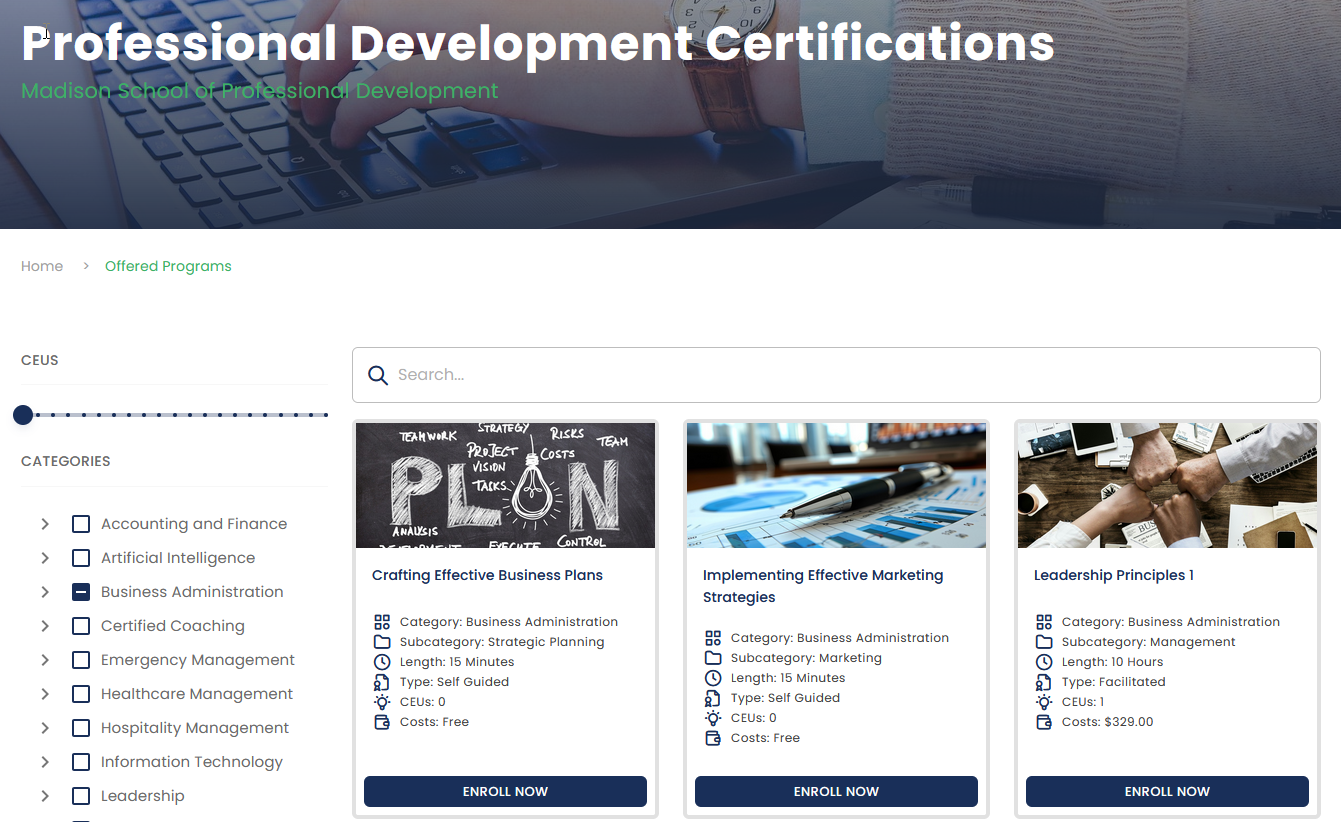Blog Posts
 May 07, 2025Strategic Innovation and Inspirational Communication
May 07, 2025Strategic Innovation and Inspirational CommunicationBy Dr. Scott
Welcome back to another edition of the Madison School of Professional Development Wednesday Leadership Blog. Last week, we started a new series on visionary leadership. In the first installment of the series, Characteristics of Visionary Leadership, we focused on the 6 characteristics of visionary leaders and then explored the important concept of future mindsets and compelling visions.
This week, we look at how visionary leaders strategically innovate, how visionary leaders must be effective change managers, and also how visionary leaders inspire others through their communication.
Strategic Innovation
Creativity is an important element in visionary leadership and visionary leaders typically embrace creative solutions to problems and also creative visions for the future. But visionary leadership is more than just being innovative and it’s also more than just taking risks.
Visionary leaders innovate strategically. They visualize a future state and develop a clear plan to achieve the vision. Strategic innovation not only lays out a unique plan, it also is a step-by-step plan of action with clear goals and targets. Visionary leaders achieve buy in from their team or their organization by also strategically building in innovation to the plan. In other words, the strategic plan, though detailed and clear, leaves room for team members to innovate and solve problems along the way and visionary leaders encourage this innovation.
For strategic innovation to be successful, though, many visionary leaders must be experts in change management best practices. Since innovation is, by definition, a new way of doing something, innovation often requires changes to an organization’s culture or operations. Team members may need re-training. Supply channels may be temporarily disrupted. The list goes on and on. To be an effective visionary leaders, then, we must also be effective change managements.
Change Management
First, change management is a systematic approach to implementing change. The goal of change management is to make systems and people more satisfied, efficient, productive, and profitable. Another key goal is to minimize disruptions and maximize stakeholder buy in to the change. The process involves
- Identifying a problem or an operational inefficiency
- Planning the change and the timelines for communicating, implementing, and managing the change
- Communicating the change to stakeholders to influence perceptions and promote buy in
- Implementing the change. And, finally,
- Assessing levels of success and repeating the process
Inspirational Communication
Effective communication is a must in leadership situations. Leaders and organizations as a whole need good channels of communication to operate efficiently, satisfy stakeholder expectations, and maintain competitive advantages. Ineffective communication channels lead to low morale, project and production disruptions, and a decrease in repeat customers.
So, while leaders must be effective communicators to help them manage teams, resolve conflict, and grow respect and trust, visionary leaders must take this one step further and be inspirational communicators.
Inspirational communicators effectively motivate and inspire others to succeed. With inspirational communication, we must be even more particular with word choice, tone, and setting. We must be sincere. Know when to listen. Know when to be assertive and when to cheer. Inspirational communicators give credit for success to others and assume all responsibility for failures and setbacks.
With this in mind, here are a few tips to becoming a more inspirational communicator.
- Simplicity is key. Be as concise as possible. Revise your message until you get it right and you say it in as few words a possible. As Mark Twain once wrote, “if I had had more time, I would have written a shorter letter.”
- Listen first and actively listen. Don’t give your opinion until you’ve heard everything and listened to all possible recommendations.
- Pay attention to your non-verbal communication. Facial expressions, posture, hand movements—these are all non-verbal cues that can either build trust or undermine your message or active listening.
- Ask questions. Inspirational communicators encourage discussion and the significance of other people’s ideas and concerns. And, finally,
- Be reliable. Always follow-through on commitments and promises. Inspirational communicators lead by example and motivate others to do the same.
Final Thoughts
Our goal over this and the next few weeks is to explore visionary leadership in detail to set the stage for the professional development and best practices mastery that can help each of become more visionary in our leadership. This week, we focused on visionary leaders and their ability to innovate strategically, effectively manage change, and inspire others through their communication Next week, we’ll take a closer look at other characteristics and best practices of visionary leaders.
If you have concepts or ideas you’d like to see me pontificate on, please pass them along to me at info@meg-spd.com. Thanks, and may all your leadership endeavors be rewarding.
Dr. Scott Eidson is the Executive Vice President of the Madison School of Professional Development and holds doctoral degrees in both history and business which he uses to educate occasionally, but mostly bore people at parties.
 May 12, 2025Launch of Free Success in Business Series
May 12, 2025Launch of Free Success in Business Series May 14, 2025Visionary Leadership and the Situation
May 14, 2025Visionary Leadership and the Situation May 21, 2025Visionary Leadership and Personality Traits
May 21, 2025Visionary Leadership and Personality Traits May 28, 2025Building Visionary Cultures
May 28, 2025Building Visionary Cultures June 04, 2025Maintaining the Vision
June 04, 2025Maintaining the Vision